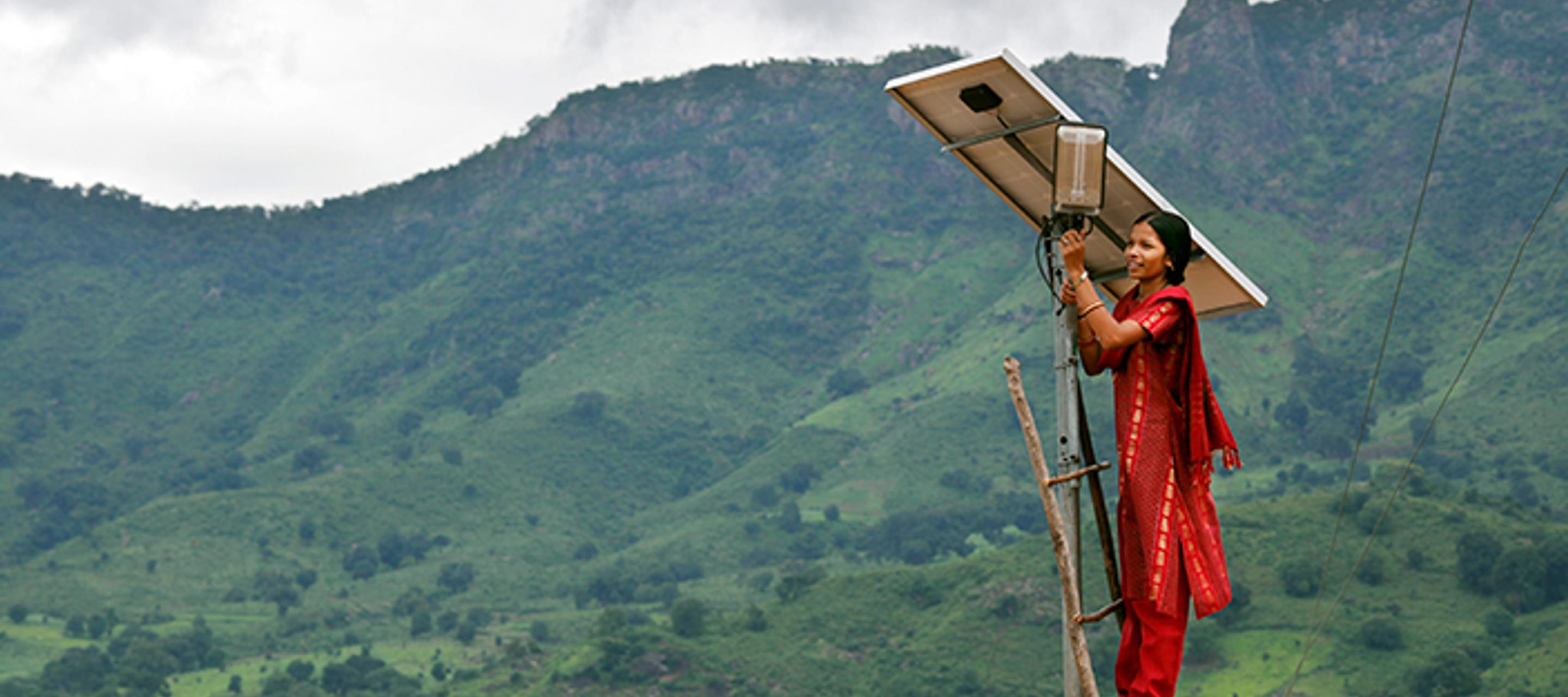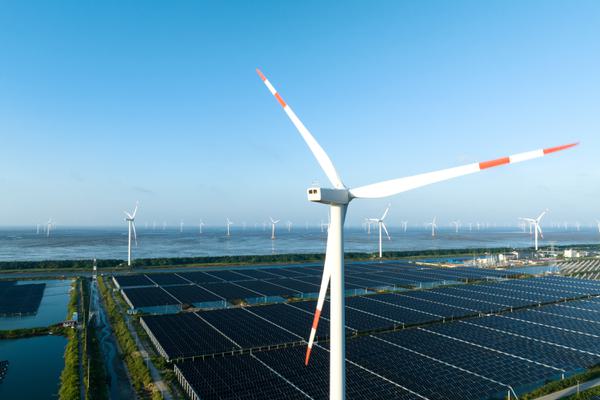Just Transitions for All: business, human rights, and climate action
15 November 2020

Climate change has profound implications for human rights. People who are already among the most vulnerable are particularly hard-hit, and the rights of future generations are already at stake. Climate action needs to happen fast. But it also needs to be participatory and fair. This is where the growing agenda around a ‘just’ transition to a zero-carbon future comes in.
This report looks at the business and human rights community’s distinctive contribution to effective climate action. It argues that there are at least four ways that business and human rights good practice can strengthen implementation of a just transition.
Drawing on insights from climate justice, sustainable development, the UN Guiding Principles on Business and Human Rights, and the rapidly evolving body of experience with just transition itself, the report is a primer for anyone involved in the climate change and business and human rights communities of policy and practice.
Download the full report
Learn More
When it comes to financing just transitions, how can we both prevent adverse environmental and social impacts and while promising adequate financial return? On Human Rights Day, 10th December 2020, IHRB was joined by leaders from the worlds of politics, investment, trade unions, and civil society to help us understand some of the challenges ahead.
Climate change has profound negative implications for human rights, posing serious threats to the right to life itself, through to adverse impacts on rights to food, health, and housing, among others. These and other impacts will become more severe as average global temperatures increase, particularly for the most vulnerable and for people living in poverty.
Governments have failed to take effective action to curb climate change, but there is growing global awareness of the need for coordinated action at all levels, and involving all actors in society, to turn in a different direction. In turn, a central dimension of the actions that are needed is transition away from the carbon intensive production and consumption that harms communities and ecosystems, and towards the sustainable and green economies of a zero-carbon world.
[Climate] transitions need to happen quickly. The[y]… also need to be fair, to be just. That means that transitions need to respect the fundamental rights of all involved, in particular the most vulnerable.
These transitions need to happen quickly. Staying within 1.5°C average global warming means reducing greenhouse gas emissions 45% below their 2010 levels by 2030, and reaching ‘net zero’ emissions by 2050.
These transitions also need to be fair, to be “just”. That means that transitions need to respect the fundamental rights of all those involved, in particular the most vulnerable.
The physical impacts of climate change have major human rights implications. Human rights due diligence can help to assess the distant impacts of greenhouse gases attributable to business activities. It can also build understanding of the impacts of climate change on all those affected by the necessary transition away from a carbon-based economy, as well as developing greater resilience to the effects of climate change itself.
Actions to tackle climate change can also have significant human rights implications. For example, the businesses that need to make transitions out of greenhouse gas emissions-intensive production, and the workers who could lose their jobs in processes of climate mitigation, are not always those who stand to gain from the considerable business opportunities of green and sustainable ‘net zero’ economies. Biofuels production, hydropower, and extraction of minerals to fuel the renewable energy boom have all been associated with negative human rights impacts for workers and communities. Adaptation to climate change also has human rights implications, for example, in cases where people are relocated to areas that are less vulnerable to climate impacts. Equally important, large-scale manipulation of the climate through geoengineering can carry drastic human rights risks.
Integrated approaches can strengthen human rights protections, climate justice, and sustainable development. And at a time of global pandemic, they can also help to deliver the green and just recovery that is so badly needed.
Businesses should take active steps to assess and address human rights issues when they plan and implement actions to address climate change. The United Nations Guiding Principles on Business and Human Rights (UNGPs) can support this, and they provide additional force to the case for business-led greenhouse gas emission reductions.
The UNGPs already address the human rights impacts of business responses to climate change as they affirm that businesses “should avoid causing or contributing” to harms through their own activities and “seek to prevent or mitigate” adverse impacts that are “directly linked to their operations, products or services by their business relationships”. The UNGPs also provide a framework for advancing the rights-sensitivity of business approaches to mitigation and adaptation. But they are less readily applied to the human rights impacts of climate change as a physical phenomenon; a conclusion that provides a strong case for strengthening efforts to integrate the management tools of climate change and of human rights respectively.
The concept of “just transition” is an increasingly visible framing for government and business action on climate change. It encompasses both public policies and business action to deal with the impacts of industry transition away from greenhouse gas emissions for jobs and livelihoods (the transition ‘out’) and measures to generate the low or zero greenhouse gas emission jobs and livelihoods of a sustainable society (the transition ‘in’).
Initially championed by trade unions, just transition incorporates strong commitment to social dialogue and to rights in the workplace. In the climate field, just transition can be understood as an expression of concern for climate justice, which addresses the moral and legal implications of vulnerability to climate change. At international level, just transition is referenced within the 2015 Paris Agreement, which is the cornerstone of the international community’s commitment to climate change. And it is also addressed in some detail in Guidelines from the International Labour Organisation which envisage it as a systemic approach to sustainability.
Just transition lends itself to implementation as a site-or-operation-level-, sectoral-, regional-, or economy-wide process. It is a relatively flexible and evolving concept, and has been associated with different formulations and initiatives that vary both in their breadth (particularly the extent to which they extend beyond workplaces to consider the implications of transition for communities and their rights), and depth (the extent to which just transition is framed as entailing transformation of – or merely adjustment to - political and economic systems). At sectoral level, the coal and finance sectors have received particular attention, and most just transition initiatives to date have been implemented in high-income rather than middle- or low-income countries. But change is afoot on both fronts, and just transition is now being applied across an increasingly wide range of sectors and countries.
[J]ust transition is now being applied across an increasingly wide range of sectors and countries.
Business and human rights good practice can strengthen just transition efforts in at least four ways:
- Attention to human rights and corresponding state duties and business responsibilities can bolster just transition strategies on matters such as ensuring access to information and meaningful participation in decision-making;
- Business and human rights framing and perspectives can help bring awareness of a wider range of impacts into just transition planning and implementation, enhancing its positive outcomes beyond the workplace boundaries of businesses directly involved;
- Human rights due diligence offers a practical tool for addressing the wider implications of just transition processes, for example, on communities, indigenous people and gender perspectives;
- Integration of existing business and human rights standards can help to screen business and policy tools that are readily associated with just transition, but that may themselves have adverse human rights implications for vulnerable people. A human rights perspective that extends understanding of just transition into value chains and business relationships can achieve better human rights and development outcomes.
The potential for positive impacts to result from integration of the business and climate change and business and human rights agendas goes beyond transition. Businesses can also contribute to climate adaptation in ways that multiply the positive outcomes of public policy priorities on climate change; they can work with civil society and others to prevent climate responses from triggering roll-back of civil and political rights protections; and they can champion human rights as part of public policy processes associated with just transition.
Integrated approaches can strengthen human rights protections, climate justice, and sustainable development. And at a time of global pandemic, they can also help to deliver the green and just recovery that is so badly needed.
Image above: 20 year old Meenakshi Dewan tends to maintenance work on the solar street lighting in her solar powered village of Tinginaput, India. Meenakshi is one of 4 women who has been trained in solar powered enginneering. By Abbie Traylor-Smith / Panos Pictures via Climate Visuals




